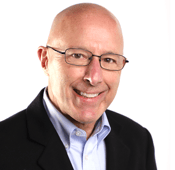Bracken
Dr. Wil Reinus, a radiologist recently retired from his position as Medical Director at ICON Clinical Research, is among the most recent additions to the Bracken team of consultants. We talked with Wil about his career and other interests.
 Q: Where are you from?
Q: Where are you from?
A: I grew up in New York City, in Manhattan, went to college in Massachusetts, came back to medical school in New York, and then moved to St. Louis for my internship and residency. I ended up staying in St. Louis at Washington University for over 25 years. Then I moved to Temple University and am now based in Philadelphia.
A: I have a background in mathematics. I like puzzles. Internal medicine was about a core set of diseases that you took care of all the time in daily practice, along with other diseases that were rare or interesting but, unfortunately for the patients, usually not readily treatable. I realized that I'd probably be a better match for radiology, which ultimately is about solving diagnostic puzzles.
A: I was in academic medicine for 35 or so years. And then I spent five years working for ICON. During that time, we hired Colin—who had not yet started The Bracken Group—as a consultant for us. He and I became friends. He’s got a great company in Bracken and he’s doing good work. So, when I retired from ICON, he said, “You’ve got to come be a consultant.” I said, “Okay.”
Q: Are there any particular areas that you're likely to focus on as a consultant with Bracken?
A: I am, of course, a physician. I've spent a lot of time in academics. I know how academics works. I know something about grant writing. I know a fair amount about the CRO world and helping pharma get drugs through trials. I know a fair amount about charters and protocols and the scientific method. I've read a few protocols for Bracken, and in almost every one of them it strikes me that there might be an easier, less expensive approach. So, the economics of protocols is of interest. And, not just proving that a drug works, but making sure you get to market fast enough to make your numbers. I actually went back to school while I was working at Washington University and got an MBA from the Olin School of Business to have some training in looking at business from a management point of view.
Q: You have had personal experience with innovation also, right?
A: While at ICON, I came up with a way to measure inter-reader performance for trial readers, which ICON adopted. I never got to publish it, though, because we were just too busy. Of course, during my time at Washington University and Temple University I was teaching residents and doing clinical research. At Washington University, I along with two PhD research colleagues, developed a way of using neural networks for automated diagnosis of mammographic lesions. I hold a patent for that.
Q: What books are you reading?
A: I just started a book called A Tale for the Time Being, by Ruth Ozeki. I’m having a little trouble getting into it. I also just started a book by an author by the name of Neil Stephenson—Cryptonomicon. It's a lot of fun. Basically, it's a docu-novel about the Second World War and Alan Turing and breaking the German codes. Most recently, I started reading Amy Tan’s The Bonesetter’s Daughter. Ms. Tan is a captivating author who’s always right on the mark.
Q: Any key interests or hobbies?
A: I'm an avid skier. I was a road cyclist for more than 25 years, and I've painted in oils since I was a boy. And, right now I'm teaching math to middle schoolers. It’s a part-time position at the French International School of Philadelphia.
Q: How is that going?
A: It’s hard to get kids this age to stay on topic. Developmentally, this age group is undergoing so many life changes, which are mostly beyond their control. I’ve finally taken the attitude that it’s okay if you don't turn in your homework. You don't have to. I'm not going to chase you anymore. Part of teaching this age group is about learning responsibility. That’s more important than the math itself.